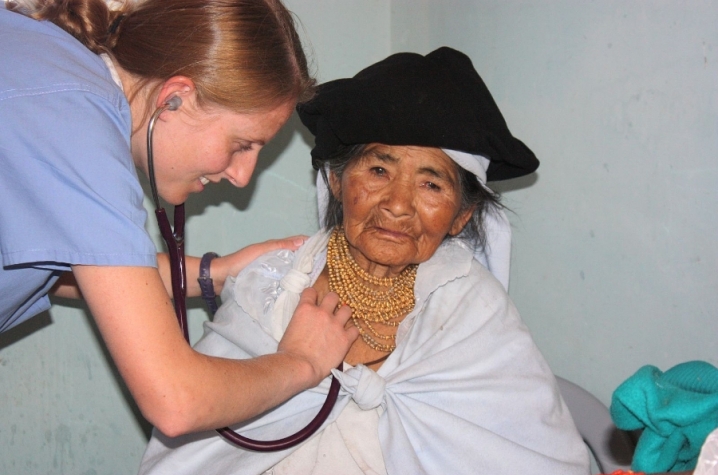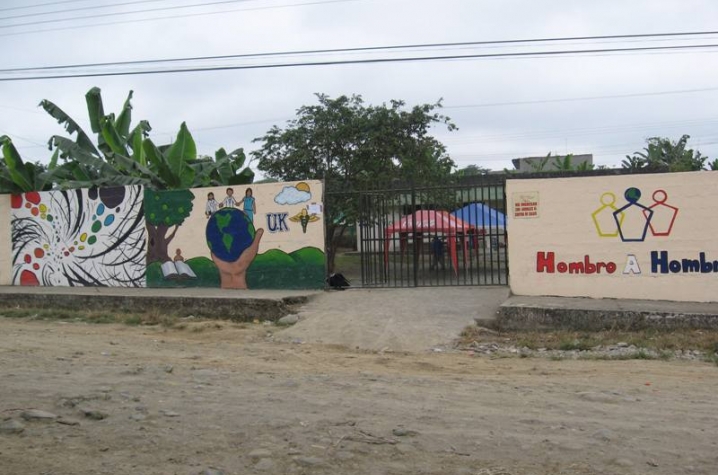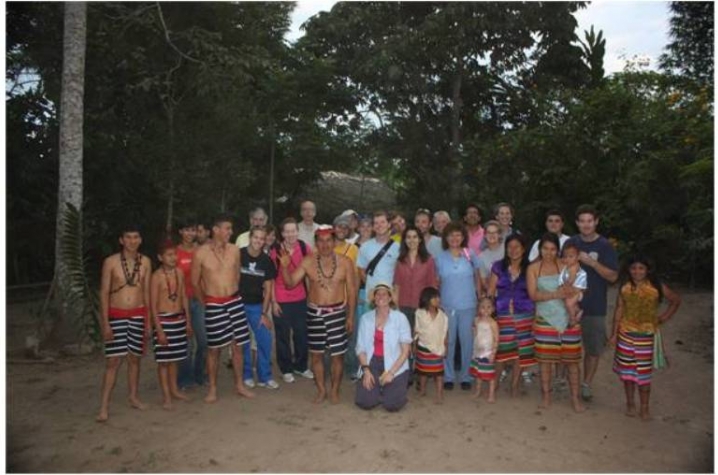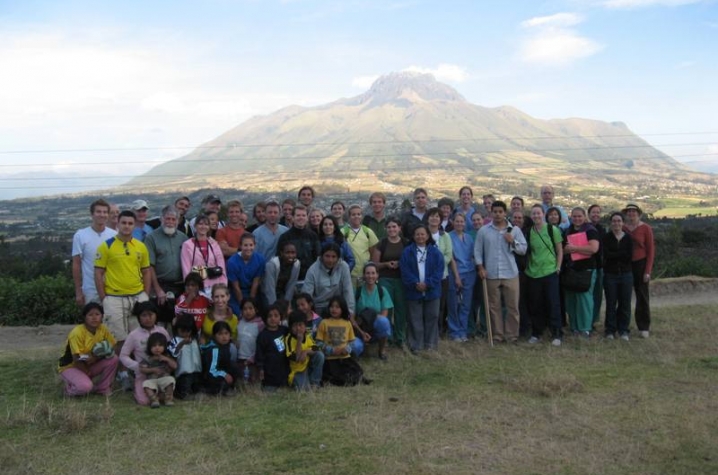UK Medical Brigades Go Global
[IMAGE1] LEXINGTON, Ky. (Sept. 10, 2009) -- University of Kentucky students studying careers in health professions have been gaining real-world experience across the globe.
Shoulder to Shoulder Global, formally Shoulder to Shoulder Ecuador, opened its first clinic in Santo Domingo, Ecuador in April 2007. Ecuador was chosen as the original site for this program's medical brigades because of the 40 year partnership between Kentucky and Ecuador through Partners of the Americas.
This medical mission visited Ecuador three times in the summer of 2009.For the volunteers in this program, being part of an unknown culture while gaining knowledge and insight creates unique clinical experiences. The mission nurtures a greater understanding of how the medical field relates to so much more within a community.
"A goal for the clinic is to continue integrating the public health system and educating the patients, and the general public," said Dr. Thomas Young, professor of pediatrics. "Our mission is not just about the health of Ecuador, but community development as well. We hope to build on this over time."
[IMAGE2] With this mission in mind in not only Ecuador, but around the world, Shoulder to Shoulder Ecuador changed its name to Shoulder to Shoulder Global.
Young participated in all three of the program's trips to Ecuador this summer, one of which was solely focused on administrative responsibilities. The other two trips, medical brigades, included more than 40 UK students, faculty and staff from all six health colleges. One of the main goals of the trip was to simply provide medical services to the underserved in Ecuador.
"Our program is unique because it is multi-disciplinary with students learning to appreciate each team members importance in caring for a patient," Young said. "It is great for students to visit areas such as these and build an appreciation for the people that live under these types of circumstances. It is a great opportunity for our students to gain a better understanding of global health."
Serving about 1,000 patients in one week, the team breaks up into two smaller teams and each group sees about 150 patients a day. During this week, students and volunteers did as much preventive screening as possible, providing necessary tools such as dental fluoride varnish for the children, toothbrushes and toothpaste.
"One of the most interesting experiences of the summer involved treating a patient who had a bot fly burrowed under the skin. These parasitic flies are transmitted by mosquitoes. This was a a great experience because none of us had ever seen a bot fly invade the human body," Young said.
Such a case is an example of the unique learning opportunities the volunteers on the mission brigades encounter when caring for patients.
"Students also experience patients that are not immune to things that some would consider basic, and they get to learn about diseases that are rarely seen in the United States," said Dr. Claudia Hopenhayn, co-leader of the Shoulder to Shoulder Global trips and associate professor of epidemiology in the College of Public Health.
Hopenhayn will be spending the next five months in Ecuador teaching and researching medical brigades as a Fulbright Scholar.
[IMAGE4]
"There has been an explosion of medical brigades in the last 10 years all over the world. This is partly because of globalization, and partly because of other organizations developing an awareness of the health inequities and realizing that they can make a difference, and in our case, serve the underserved in Ecuador," Hopenhayn said.
Working with the Shoulder to Shoulder Global program showed Hopenhayn the lack of research being done regarding medical brigades, and also the positive impact it has on the volunteers.
"There is always an overwhelmingly positive response about the trips," Hopenhayn said. The students really enjoy working with other disciplines, from nursing, medical, physical therapy, public health, and soon dental. What started as a small medical mission has grown in size and scope, and the fact that we have a small health center that travels to Ecuador provides opportunities in research for students and faculty alike."
Not only do the participants of Shoulder to Shoulder Global have unique clinical experiences, they also have the opportunity for a greater understanding of how the medical field relates to so much more within a community. A goal for the clinic, said Young, is to continue integrating the public health system and educating patients and the general public.
For the future of the Shoulder to Shoulder Global program, more clinics are hoped to be established in different areas around the world. "It has taken 10 to 12 years for Shoulder to Shoulder Ecuador to expand to Shoulder to Shoulder Global. Making more permanent clinics in other countries a reality will depend a lot on the resources and funding that we have available, but it is definitely something that we hope to see in the future," Hopenhayn said.
If you are interested in participating in future brigades, contact STSG Coordinator, Alex Hall, at alexghh@uky.edu and check out the website: www.shouldertoshoulderky.org/.








